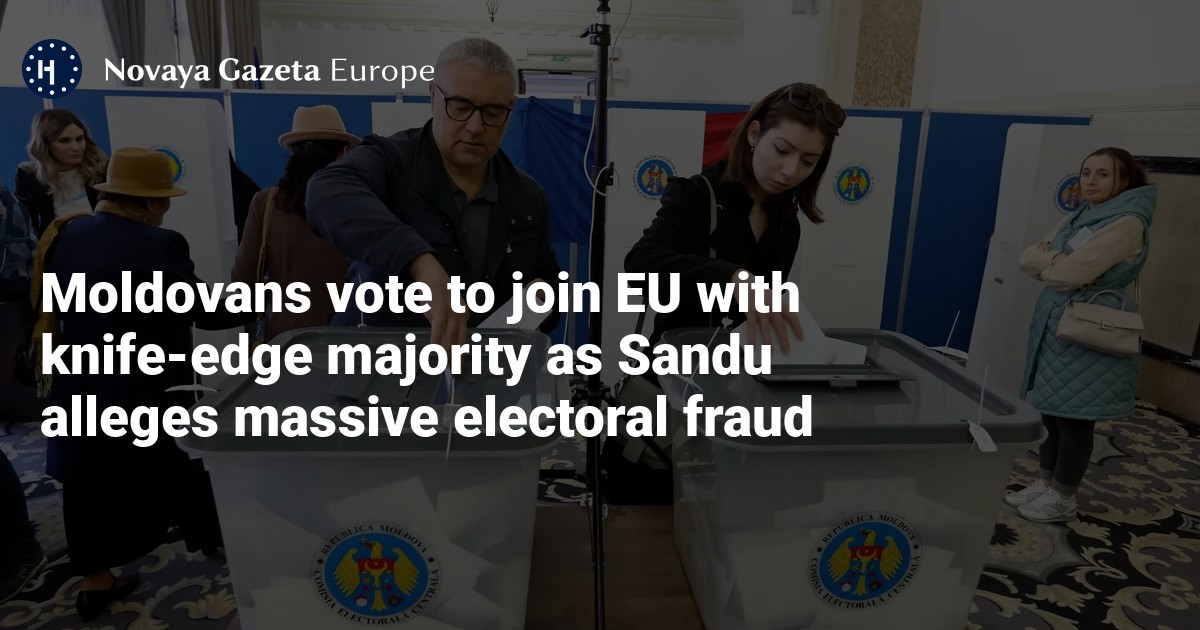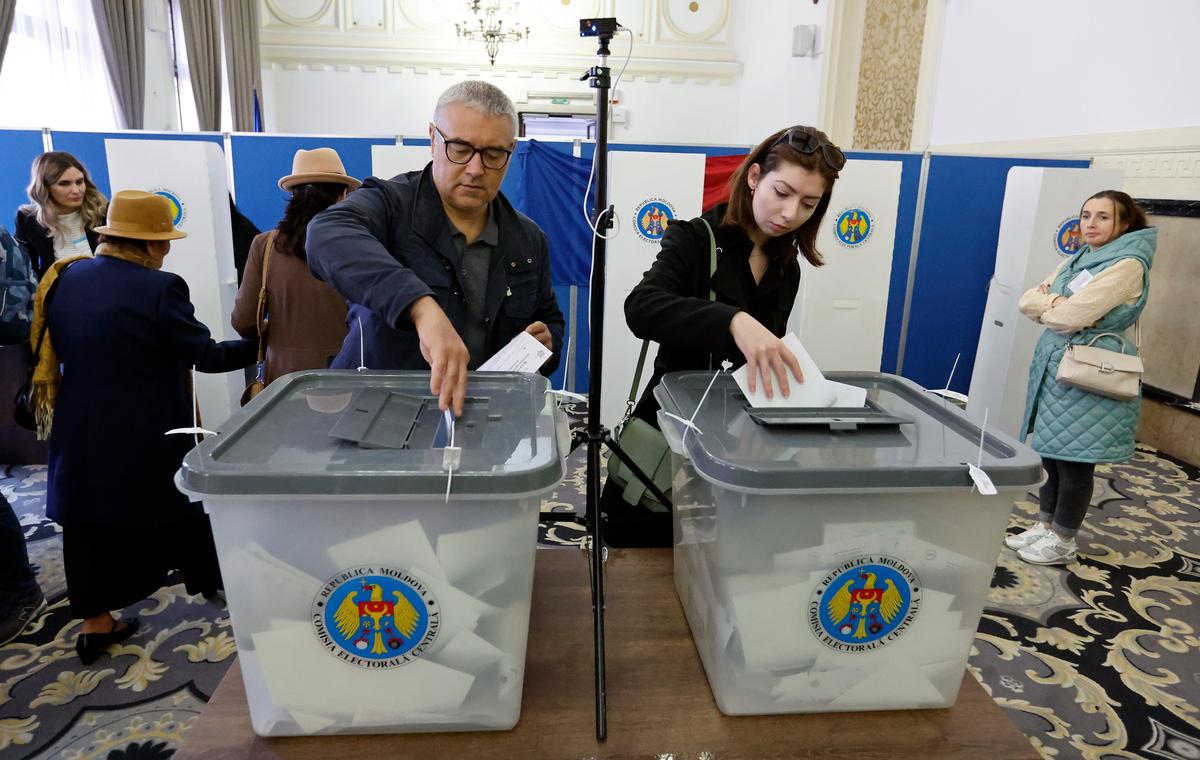




Moldovan citizens cast their ballots at a Bucharest poling station in neighbouring Romania, 20 October 2024. Photo: EPA-EFE / ROBERT GHEMENT
The preliminary results of Sunday’s presidential elections in Moldova gave incumbent pro-European President Maia Sandu a comfortable lead with just under 42% of total votes cast, while the knife-edge results of a referendum on whether or not Moldova should join the EU were still too close to call on Monday morning, according to Moldova’s Central Electoral Commission.
Sandu, who with 98.29% of cast ballots counted, won 41.92% of the vote, will now face her main rival, the country’s former Prosecutor General Alexandr Stoianoglo, who was the candidate put forward by the pro-Russian Party of Socialists, who took 26.35% of the vote, in a second-round run-off election on 3 November.
Both Sandu and Stoianoglo did far better than opinion polls predicted they would in the run-up to the election. While recent opinion polls suggested that Sandu was the clear favourite to win the race, her proportion of the vote was predicted to be 36%, while Stoianoglo was forecast to win just 10% of the vote.
During the vote count, Sandu made allegations of widespread electoral fraud, adding that she and her team had evidence to back up the claims. “Moldova has faced an unprecedented assault on our country’s freedom and democracy, both today and in recent months,” Sandu wrote on X.
“Criminal groups, working with foreign forces hostile to our national interests, have attacked our country with tens of millions of euros, lies, and propaganda, using the most disgraceful means to keep our nation trapped in uncertainty and instability,” she continued.
Moldova’s presidential election was combined with a referendum asking citizens whether they supported amending the constitution to make European Union membership a political goal for the country. With over 98% of votes counted, the preliminary results stood at 50.03% of voters in favour of amending the constitution and 49.97% against, making it too close to call.
Sandu, who has spearheaded the country’s recent push for European integration in light of the Russian invasion of neighbouring Ukraine, made support for the constitutional amendment central to her campaign, and will be disappointed by the extremely close result, even if the electorate ultimately vote in favour. Stoianoglo, by contrast, is firmly against any further Moldovan integration with the EU.
The European Commission recommended in November that the EU Council start negotiations with Moldova on its accession to the EU. During a visit to Moldova’s capital Chisinau in October, European Commission President Ursula von der Leyen signalled the EU’s readiness to invest €1.8 billion in the Moldovan economy over the next three years ahead of its prospective accession date of 2030.
